In life, we all have moments where our actions may unintentionally hurt those around us, and recognizing that is the first step toward making amends. Writing an apology letter can be a heartfelt way to convey our remorse and express the desire to mend bridges. It's essential to acknowledge the impact of our inconsiderate actions and take responsibility, allowing the recipient to feel heard and valued. So, if you're seeking guidance on how to craft a sincere apology letter, we invite you to read more and discover the tips and templates that will help you express your feelings effectively.

Sincere acknowledgment of actions
Taking responsibility for my actions, I recognize the inconsiderate behavior that caused distress. Reflecting on the situation, I understand how my choices impacted others, particularly in social settings like gatherings or meetings. Events occurred that led to misunderstandings and negative feelings among friends or colleagues involved. Acknowledging the hurt feelings and confusion is essential, as it fosters an environment of trust and respect. I sincerely apologize for any discomfort my actions may have caused and strive to learn from this experience. Moving forward, I am committed to demonstrating greater awareness and consideration in my interactions.
Clear explanation of the impact
Inconsiderate actions can deeply affect personal relationships, causing emotional distress and eroding trust among friends or colleagues. For instance, neglecting to inform a colleague about a last-minute schedule change (such as a significant meeting in a corporate environment) may lead to misunderstandings or missed opportunities, which can affect team productivity and morale. When personal commitments are overlooked (such as forgetting a birthday or prior engagement), it can leave the other person feeling unvalued or disrespected. Acknowledging these repercussions demonstrates accountability and highlights the importance of respectful communication in maintaining healthy relationships.
Genuine expression of regret
A heartfelt apology can mend relationships and restore trust. Acknowledging harmful behaviors, reflecting on their impact, and expressing sincere regret are essential. For instance, missing a friend's birthday celebration due to poor time management may cause feelings of neglect (the emotional pain of being overlooked). Such an oversight can lead to strained friendships, risking emotional bonds built over years. Clearly articulating the feelings of remorse and the desire to make amends can help rebuild trust. Suggesting a thoughtful gesture, like treating the friend to dinner, demonstrates commitment to repairing the relationship and valuing the friendship. Overall, a genuine expression of regret fosters healing and reconnection.
Commitment to make amends
Inconsiderate actions often lead to misunderstandings, as seen in interpersonal relationships. Acknowledging mistakes shows emotional maturity and awareness, critical in repairing damaged trusts. Genuine apologies illuminate accountability, which can foster deeper connections. Sincere commitment to making amends is essential, as individuals must take actionable steps towards changing behavior. This could include setting specific goals to ensure future considerations are upheld, addressing previous missteps. Emotional investment in rectifying situations demonstrates a profound respect for others, encouraging a pathway to forgiveness and healing. These practices create a foundation for stronger relationships, allowing for the restoration of trust over time.
Assurance of behavior improvement
Apologies for inconsiderate actions can foster stronger relationships. A heartfelt apology acknowledges the impact of one's behavior on others, emphasizing key emotions such as regret and the desire for personal growth. Assurance of behavior improvement must include specific steps, such as seeking to understand different perspectives, committing to patience, and actively listening in future interactions. Additionally, reflecting on past incidents can lead to meaningful changes in response to similar situations. Building trust after inconsiderate actions requires consistent efforts to demonstrate understanding, empathy, and accountability, ultimately nurturing deeper connections with those affected.

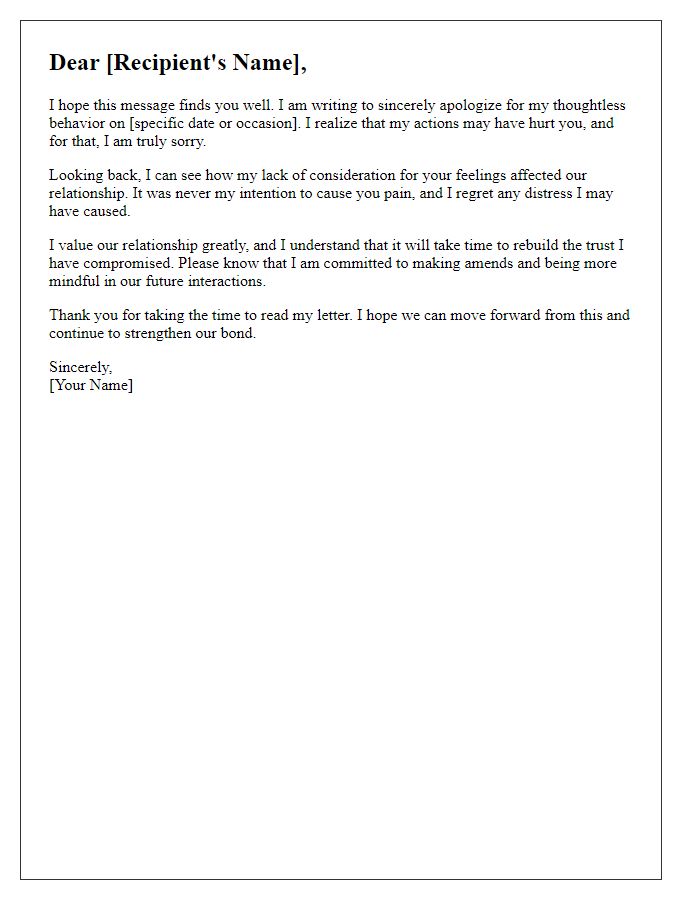
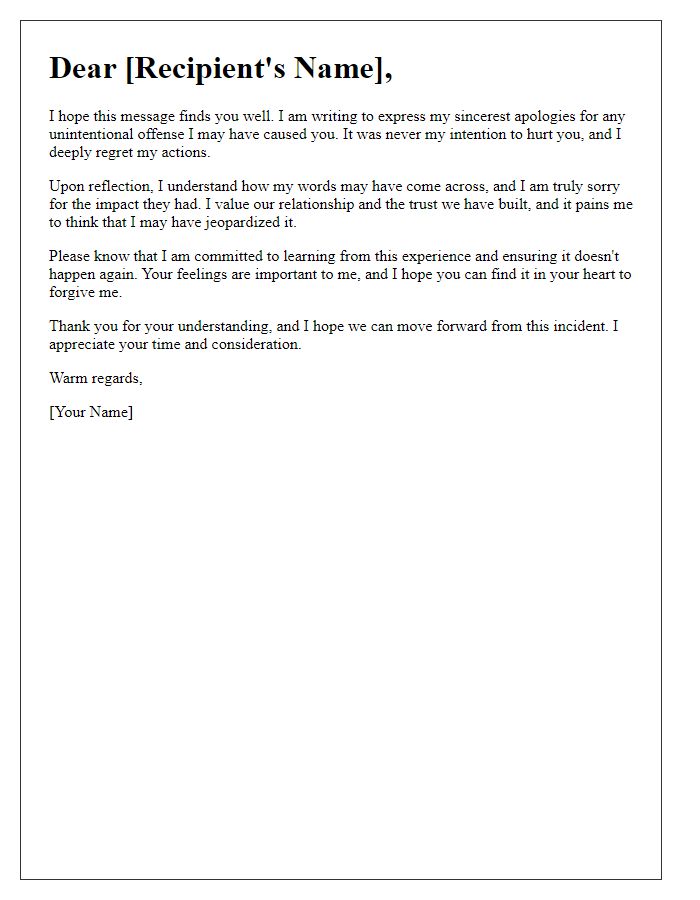
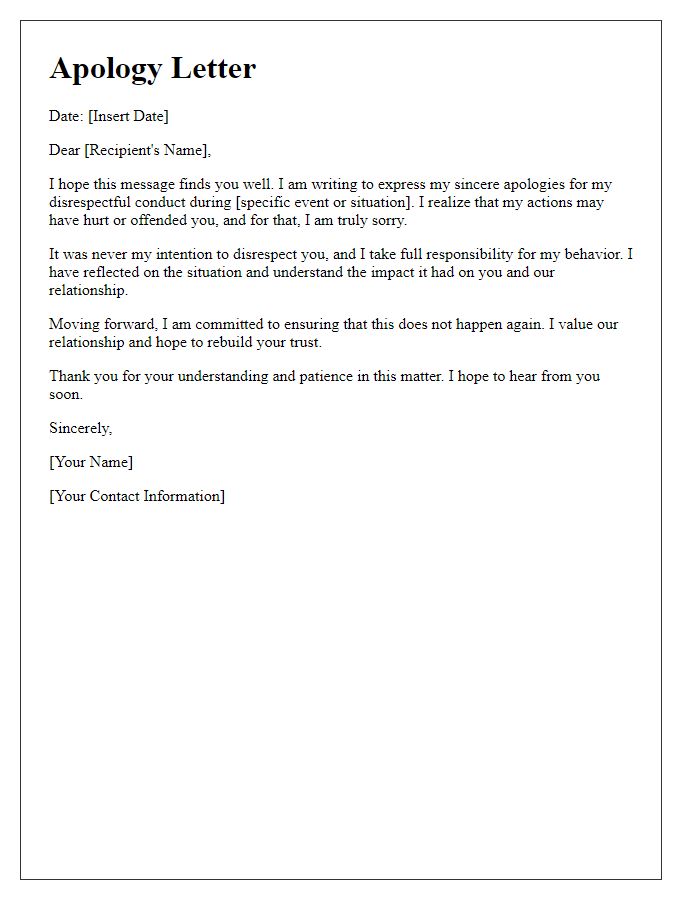
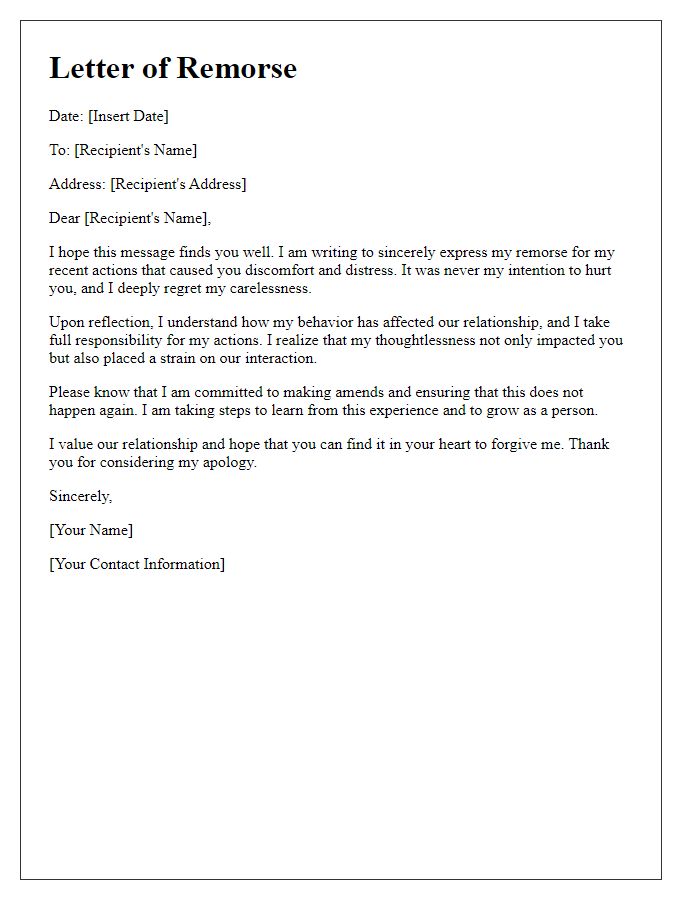
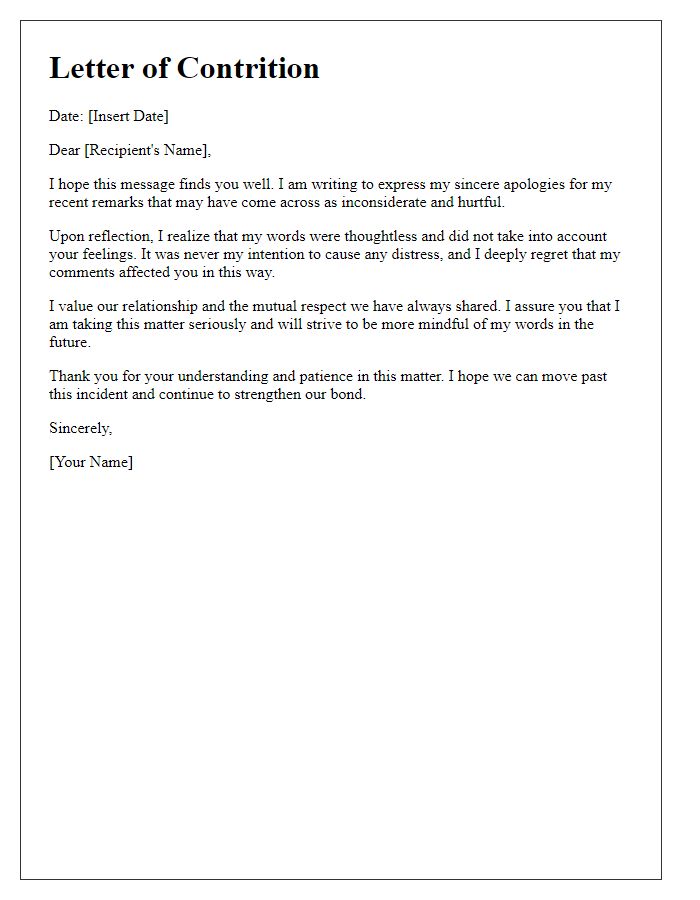
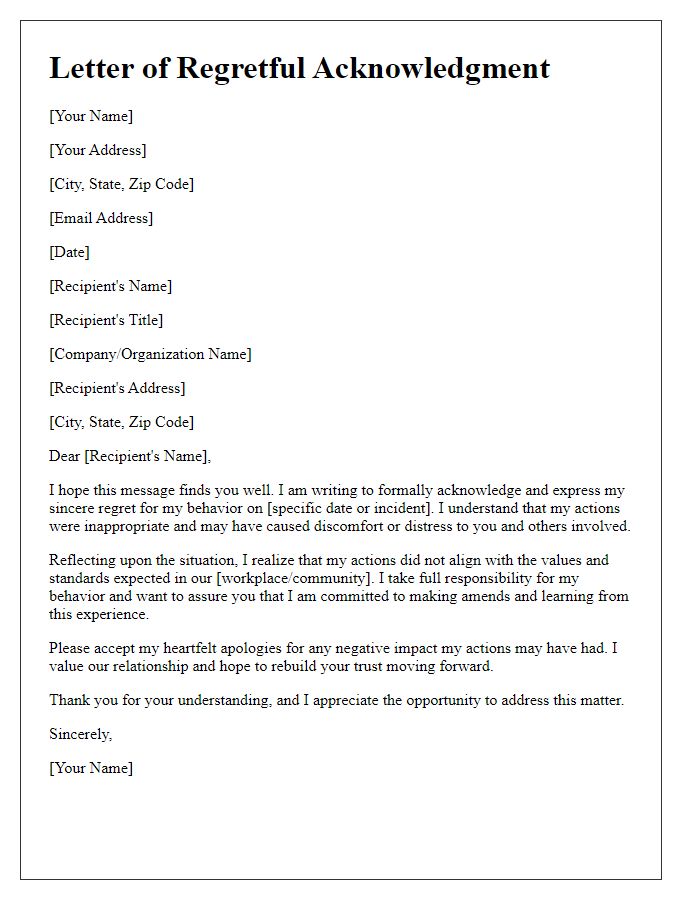
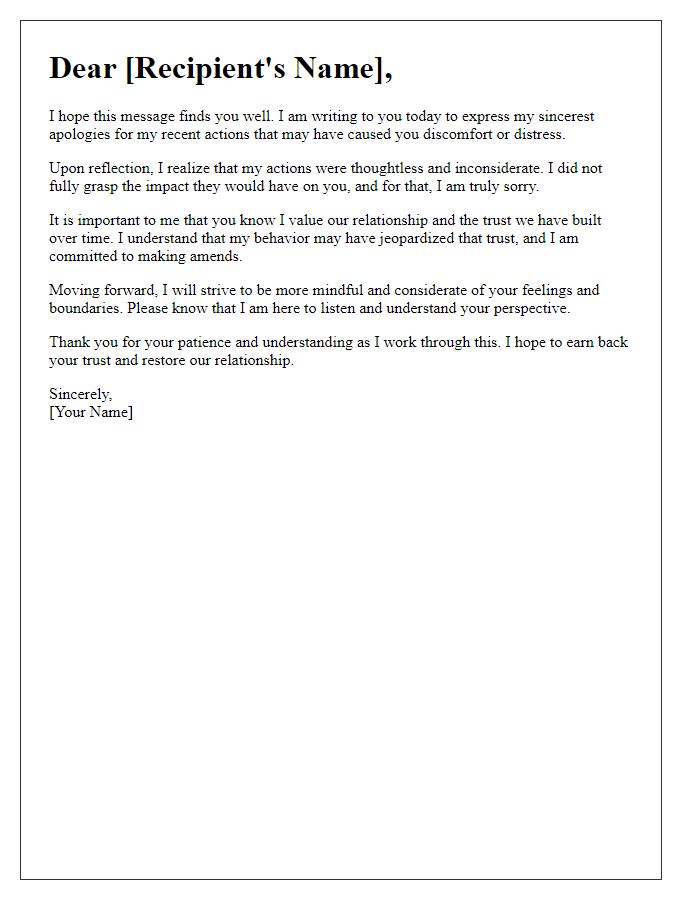
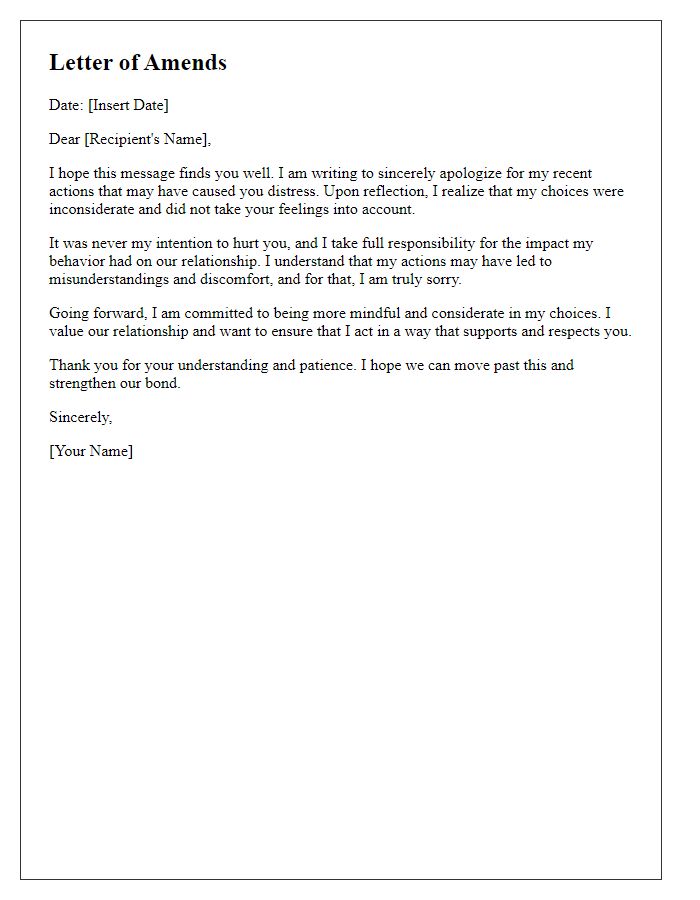
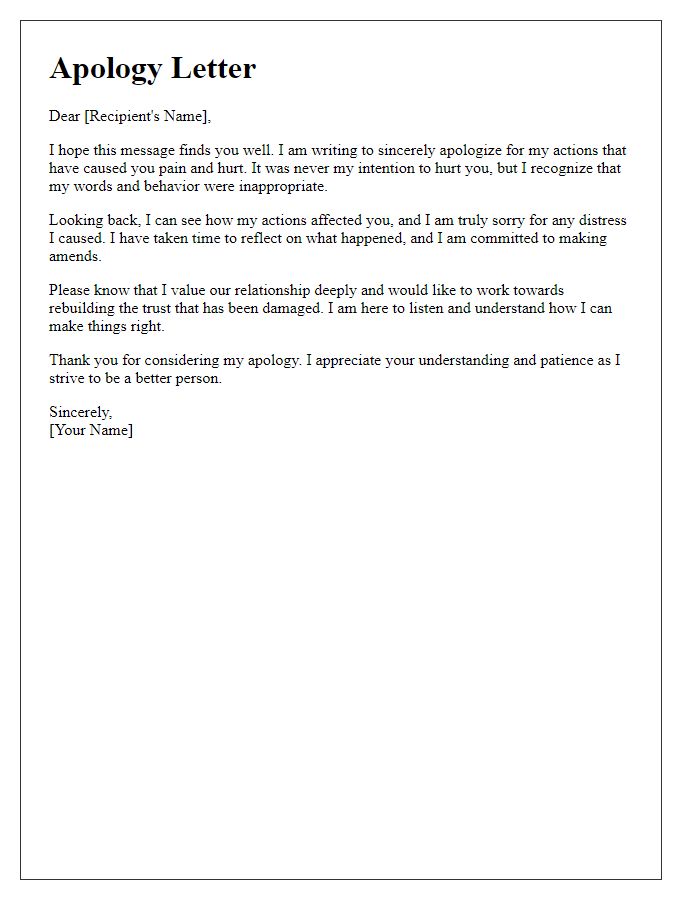
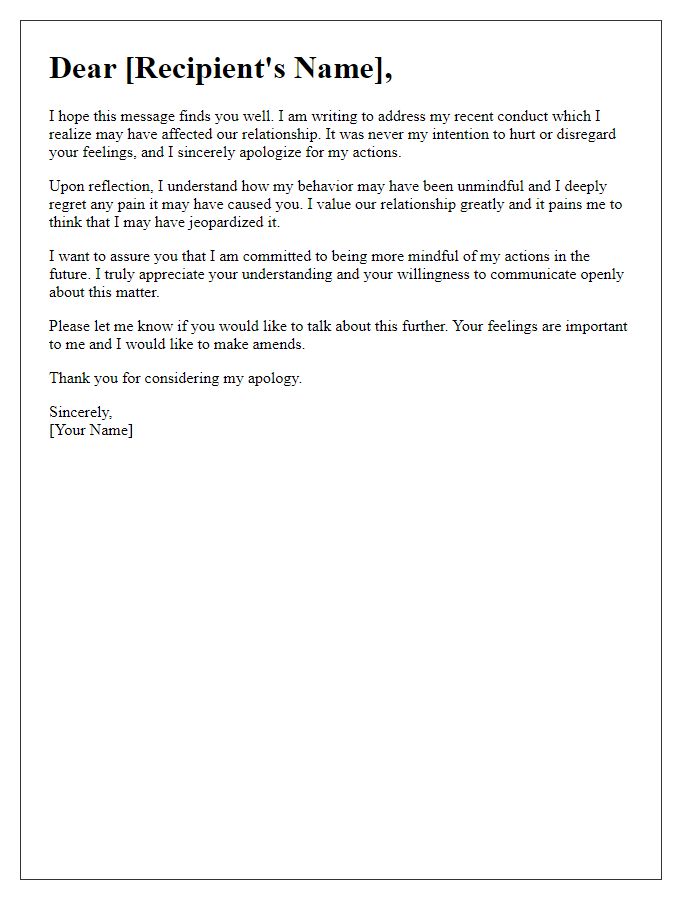


Comments